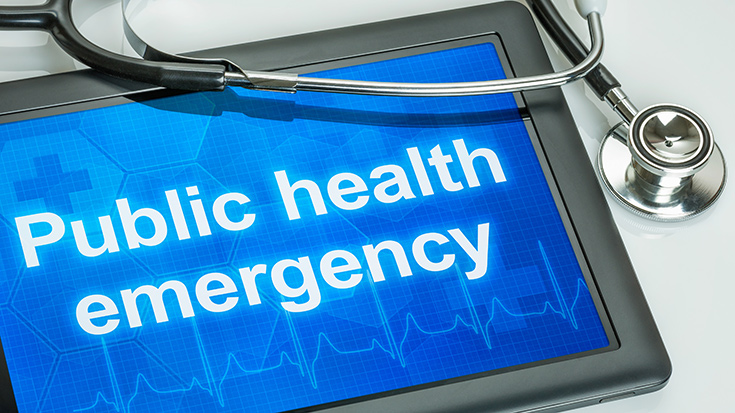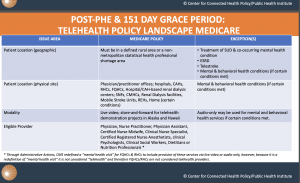As the pandemic raged through 2020 and 2021, we started to hear the question: What’s the telehealth world going to look like at the end of the pandemic? The Public Health Emergency (PHE) permitted many temporary allowances regarding telehealth policy and reimbursement. Many insurance payors made some temporary adjustments permanent, and as policy became fluid, technology surged.
Three years after the PHE was first declared (Jan. 31, 2020), all signs point to it coming to an end April 2023. What next? A great resource for preparing for the end of the PHE was developed by the NCTRC and the Office of Telemedicine Johns Hopkins Medicine. You can view it HERE.
Some things to keep in mind… with the PHE expiring in April, there will be a 151 day telehealth flexibility extension that will be in place until September 2023 (see Budget Act of 2022 below). One of the most important things to consider will be the requirement to have a HIPAA compliant telehealth video platform in place by the end of the PHE. During the pandemic, the Office for Civil Rights (OCR) allowed for lesser encrypted platforms to be utilized by not imposing penalties. Per the OCR regarding HIPAA and telehealth: “OCR will exercise its enforcement discretion and will not impose penalties for noncompliance with the regulatory requirements under the HIPAA Rules against covered health care providers in connection with the good faith provision of telehealth during the COVID-19 nationwide public health emergency.” You can read more about the OCR’s pandemic discretion HERE.
Everyone will be required to have HIPAA compliant video platforms in place at the end of the PHE. It’s important to do your research and ensure your existing platform is HIPAA compliant and/or find one that is. The NCTRC has a great resource for telehealth HIPAA compliance. You can view it HERE.
Other considerations and things to know:
Consolidated Appropriations Act of 2021 expanded telehealth policy to permanently allow mental health services under certain conditions.
Budget Act of 2022 allows for certain temporary waivers to continue to be used 151 days after the end of the PHE.
- Audio only services
- Geographic limitations (i.e. home still allowed)
- FQHC, RHC, PT, OT, SLP remain eligible providers
As far as what happens when the 151 day grace period ends, our friends at the CCHP developed this chart:
Here are some great videos to watch to stay informed:
It’s important to keep the conversation going. Feel free to reach out if you have any questions, ideas or concerns. Stay safe out there.






